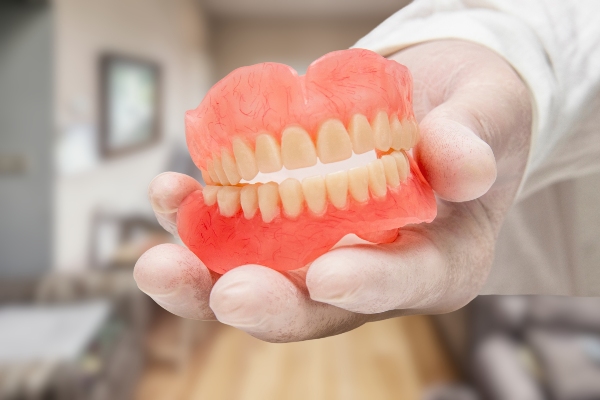 Considering dentures? Read on to learn more. For individuals dealing with tooth loss, dentures might offer a life-changing experience, both for their dental function and aesthetics. Millions of adults depend on dentures for their dental needs. According to a National Nutrition and Health Examination Survey, about 57% of Americans aged 65 to 74 and 51% of individuals aged 55 to 64 use partial or full dentures. If you have been slated to get dentures, you should understand the fitting process and what to expect.
Considering dentures? Read on to learn more. For individuals dealing with tooth loss, dentures might offer a life-changing experience, both for their dental function and aesthetics. Millions of adults depend on dentures for their dental needs. According to a National Nutrition and Health Examination Survey, about 57% of Americans aged 65 to 74 and 51% of individuals aged 55 to 64 use partial or full dentures. If you have been slated to get dentures, you should understand the fitting process and what to expect.
What happens during a fitting for dentures?
The first step in getting dentures is a comprehensive consultation. At this first appointment, the dentist will evaluate the health of the patient’s teeth, including their gums and also the sturdiness of their jawbone. It is an important step in figuring out what kind of dentures works best. Full dentures are for individuals who have lost almost all of their teeth and partial dentures fill the spaces in between any strong and healthy natural tooth.
Taking impressions
Making accurate impressions of the patient’s mouth is the key to functional and comfortable dentures. This involves making molds of the gums, teeth, and mouth to fit their exact measurements. Modern dentistry uses electronic scanners and 3D printing to produce exact impressions for dentures that are more natural-looking and fit better than ever.
The trial phase
The "try-on" phase is one of the most crucial steps before the dentures are in place. This stage entails using a mock-up created from the first impressions to check the shape, bite alignment, and aesthetic appeal. It is an opportunity to find out what the final dentures will look and feel like. It also allows the general dentist to make any modifications before the finished dentures are produced.
The final fitting
The final part of the whole denture fitting procedure is when the device is put in place. During this appointment, the dentist will ensure the dentures fit securely and comfortably in the patient’s mouth and make some last-minute adjustments if necessary. Patients will also learn how to clean their dentures and how to adjust to the brand-new dental appliance.
Adjusting to new dentures
The adaptation to dentures is a slow process. It often comprises a break-in phase where wearers might experience minor discomforts, altered speech, and increased saliva production. The dental professional will recommend follow-up appointments to help with the adjustment phase. If there is an issue with the fit, additional adjustments might be necessary.
Comfort and longevity
Dentures will last a long time with routine dental checks and care at home. This includes maintaining great oral hygiene and protecting the device from damage. Due to the natural changes to the gums and jaws, patients might require adjustments or even relining of their dentures to make them fit correctly and function effectively.
Conclusion
The procedure for getting dentures requires precision, personalization, and patient education. People can make the transition to dentures by knowing every step of the process from the first consultation to the fitting and adjustment process. With proper care and maintenance routine, dentures can make an individual smile better and enjoy life more. To learn more, book an appointment with our dental office today.
Request an appointment or call Brimhall Dental Group at 661-249-1122 for an appointment in our Bakersfield office.
Recent Posts
Dentures are a popular teeth replacement solution that can improve the function and appearance of your smile. They are designed to look like natural teeth and consist of different materials, such as acrylic and metal. Whether you are new to dentures or have been wearing them for years, it is important to properly care for…
Dentures will give you the freedom to smile, speak, and eat well. These custom-fit restorations can provide comfort while wearing them. Knowing how these restorations can help your appearance, you can make informed decisions before your treatment. Here are the details on how dentures can enhance your smile.Dentures can replace missing teeth and can be…
Dentures are durable and effective teeth replacements. However, even the most reliable dental devices may start to fit differently over time. This may be caused by changes in the jaw or something as simple as everyday wear and tear. Fortunately, we can reline dentures so that they feel like new again.Relining is a process in…


